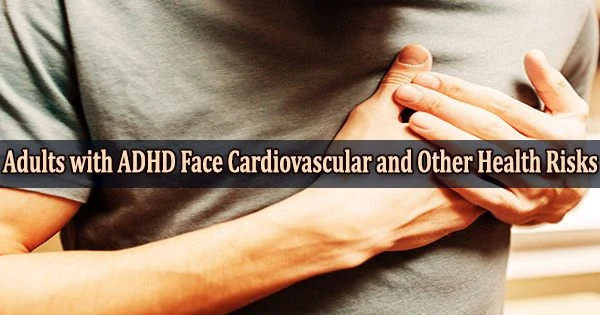According to a recent Swedish study that followed more than five million persons for 12 years, adults with ADHD (Adult attention-deficit/hyperactivity disorder) have a higher chance of having a cardiovascular disease than adults without ADHD. (Individuals with pre-existing cardiac problems at the start of the study period were excluded.)
Overall, 38 percent of adults with ADHD had a diagnosis of at least one type of cardiovascular disease compared with 24 percent of the non-ADHD control group. Despite being higher than controls in boys and young adults with ADHD, this risk persisted after age and sex were taken into account.
Although several illnesses co-occurring with ADHD, such as eating disorders and substance abuse, raised heart health risks in comparison to people with ADHD alone, taking medications for ADHD or other medical or mental conditions as directed did not impact the risk.
These findings suggest that the effects of adult ADHD are an independent risk factor for cardiovascular disease, the most common forms being cardiac arrest, stroke, and peripheral vascular disease/arteriosclerosis.
The study may have included more severe cases of ADHD and excluded less severe cases because it used data from a national health registration. Additionally, there were no data on lifestyle choices like nutrition and exercise.
The Bigger Picture Health Risks for Adults with ADHD
This study supports prior analyses linking a lifetime diagnosis of ADHD with a variety of health conditions, some of which were linked in the previous study to increased risk of cardiovascular disease. In a study looking at health state and behaviors at age 27, these elements along with a history of ADHD indicated a shortened expected life expectancy by almost 10 years.
The Benefits of Exercise for Adults with ADHD
A recent study found that high-intensity interval training (HIIT) yielded specific benefits to young adults with ADHD. College students with ADHD outperformed non-ADHD controls on tests of sadness and ADHD symptoms, as well as on measures of cognitive processing speed and response variability on a computerized continuous performance task.
Such a result is in line with earlier studies that have examined the several advantages of exercise for adults with ADHD, many of which relate to cardiovascular health as well as general health and wellbeing.
Exercise improves one’s day’s organizational structure in addition to its obvious positive effects on one’s general health and cognitive functioning for persons with ADHD. It promotes general health, including better sleep and momentary symptom relief for ADHD.
Hopefully, exercise in whatever form works for individuals with ADHD also boosts their sense of self-esteem, efficacy, and confidence in other endeavors and roles in their lives. Lastly, these modifiable health behaviors can be staples of treatment plans within evidence-based medical and psychosocial treatment approaches for adult ADHD.
















